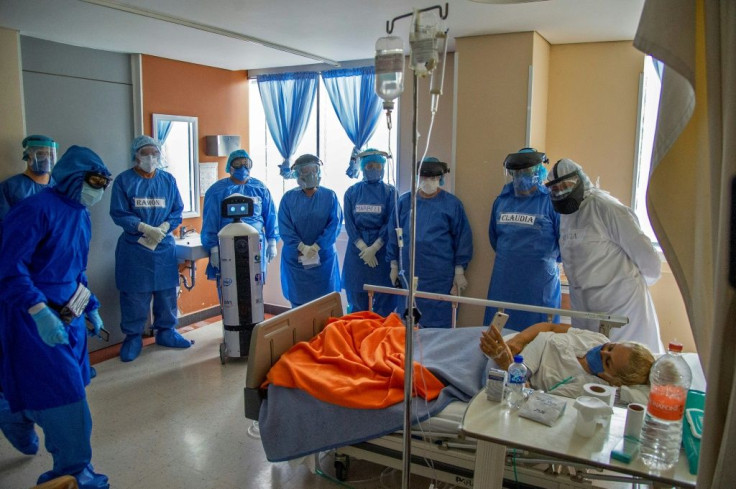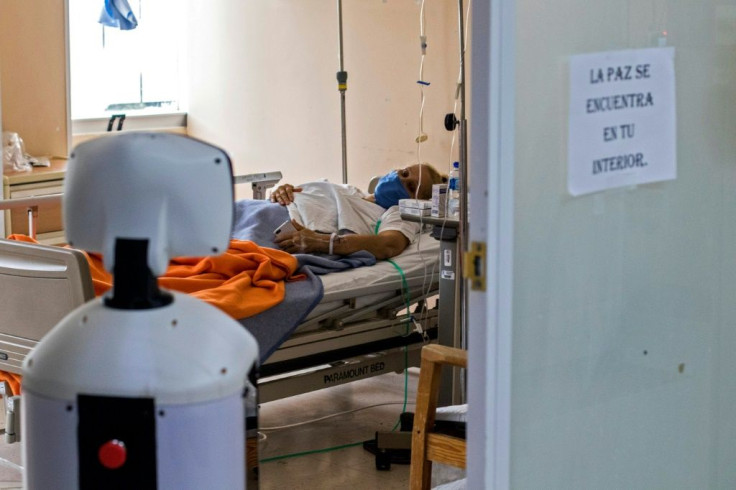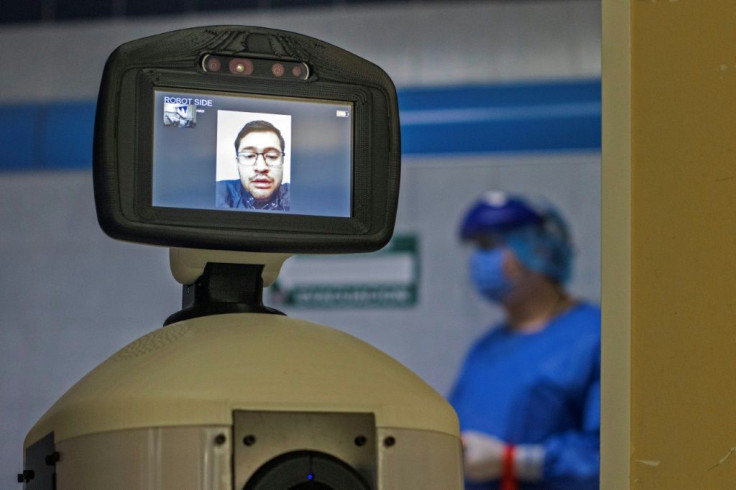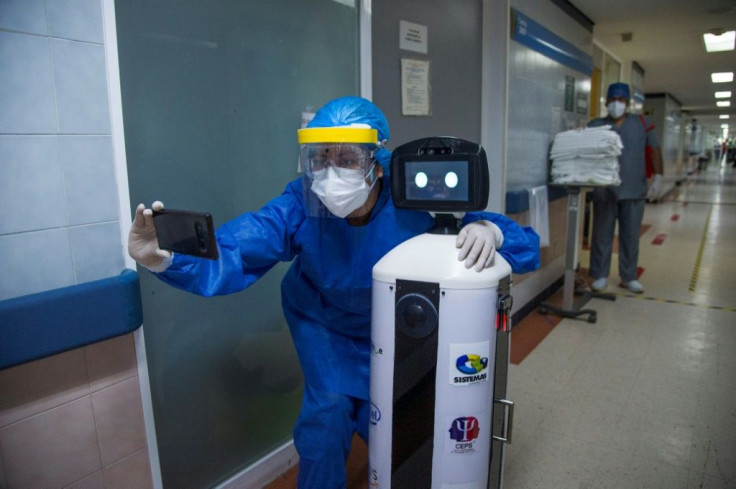Robot Eases Loneliness Of Mexican Virus Patients

A robot at a hospital in the Mexican capital is providing a lifeline for coronavirus patients separated from their relatives and reducing the risk of infection for medical workers.
"Hi, I'm LaLuchy Robotina! What's your name?" the 1.4-meter-tall (4.6 feet) robot asks patients as it goes from room to room.

It moves around on wheels and has a camera and display screen enabling relatives and doctors to chat with patients or staff in full protective gear in the coronavirus ward.
"It allows us to have a physical presence... but with zero exposure to aerosols within the Covid-19 area," said Lucia Ledesma, a neuropsychologist at the November 20 National Medical Center.

The hospital robot, part of a global trend aimed at reducing the risk of infection during the pandemic, was even designated as a "co-therapist" for coronavirus patients in July.

Since then, it has carried out around 160 missions with infected patients, their relatives and the mental health team.
It can even make soothing sounds to reduce the stress caused by isolation.
The robot "helps us with the mental health of the patient," said Sandra Munoz, who coordinates the hospital's strategy against the virus, which has killed more than 60,000 people in Mexico.
The bot has computer vision enabling it to recognize people and sensors to help it to move around.
It is a lifeline for patients like Rosa Maria Velazquez, one of more than half a million Mexicans who have been infected with the virus.
"As (families) cannot enter, they see us and we see them, and that cheers us all up," the 55-year-old said from her hospital bed.
© Copyright AFP {{Year}}. All rights reserved.





















